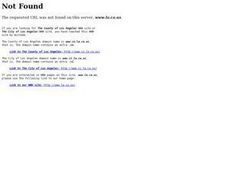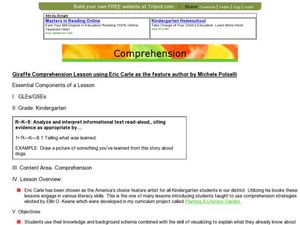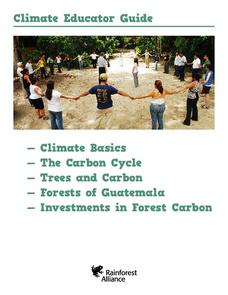Curated OER
The Difference Between Acids and Bases Using Different Indicators
Students identify the differences between acids and bases. In this acids and bases lesson plan, students identify and distinguish between acids and bases. They use household products to test the ph levels. They test the ph levels by...
Curated OER
Using Dialogue Journals in Support of Science Instruction
High schoolers build a dialog journal within their science class. They develop written responses to questions asked by the teacher in a journal notebook. Teachers have the responsibility to read and respond to student responses.
Curated OER
Using Team Games Tournaments
Students review the unit on evolution and natural selection by playing a card game. Students take turns drawing a card from the stack and reading the question out aloud. The reader gives an answer. The other students, in turn may pass or...
Curated OER
The O Zone-Code Read Alert
What are the effects of an air quality alert? Expert groups receive one component of air quality information resources to study. Pupils then jigsaw into new groups and share their knowledge. Finally, they draft a statement of what they...
Curated OER
Critical Thinking Strategies
Students explore critical thinking strategies. For this critical thinking lesson, students evaluate multiple choice answers. Students note similarities between incorrect answers and discover how to compare and contrast incorrect and...
Consortium for Ocean Science Exploration and Engagement (COSEE)
Understanding the Food Web
Building on prior knowledge of the pervious lesson in the series, pupils explain the previous lesson to each other. Then they write a simple guide for a young child to read on the same topic.
Curated OER
“THE LORAX” by Dr. Seuss
Few children's books convey the message of conservation as well as Dr. Seuss' The Lorax. Read the story aloud, emphasizing the interconnectedness of plants and animals in an ecosystem and discussing different ways people can help the...
Channel Islands Film
Arlington Springs Man: Lesson Plan 1
Learning to craft quality questions is a skill that can be taught. Class members use the Question Formulation Technique to learn how to create and refine both closed-ended and open-ended questions. They then view West of the West's...
Virginia Department of Education
Succession
The final lesson in a two-part series prompts scholars to create newspaper articles and succession events. Applying their knowledge of the ecosystem and the past examples of succession, they predict what will happen in the future using...
Serendip
Golden Rice – Evaluating the Pros and Cons
More than half the world's population eats rice as a daily staple ... imagine if that rice could prevent illness. Scientists genetically engineered rice to include vitamin A for just that purpose. However, room for debate still exists....
Institute of Electrical and Electronics Engineers
Build a Big Wheel
What does it take to prepare for a construction project? In an engineering instructional activity, youngsters examine how a Ferris wheel can turn and carry a load without falling apart. After reading up on big wheel designs, they create...
National Nanotechnology Infrastructure Network
Jell-O® Waveguide and Power Loss
Jell-O® can help model the transmission of light through fiber optic cables. Young scientists use the jiggly dessert to make a waveguide to transmit a laser beam from one point to another. Their models help them learn the function of...
WE Charity
High School–Module 2: Circular Economy and Nature
Everyone's heard the popular slogan reduce, reuse, recycle, but there may be a better way to talk about sustainability. Using the second lesson from the five-part WE Are Innovators—High School Modules series, learners explore issues...
WE Charity
High School–Module 1: Sustainable Innovation
What does it mean to have an innovative mindset? Pupils think outside the box with the first of five lessons from the WE Are Innovators—High School Modules set. Scholars read articles and watch videos about sustainable innovation, such...
Curated OER
Improving Deductive Reasoning Skills
Students develop a strategy list for problem solving by working with different types of problems. They recognize problems that may be solved using deductive reasoning and solve deductive reasoning problems.
Curated OER
How Can We Keep Our Forests Intact and Have Our Chocolate Too?
Fourth graders explore various methods of growing and harvesting rainforest foods in order to sustain its biodiversity. They discuss the various uses for trees from several viewpoints. Students research chocolate demand and land use...
Curated OER
Reading the Periodic Table
Students explore the structure and function of the periodic table of elements. Though memorization drills and games, students working in pairs, identify the elements of the periodic table, their grouping, their properties and their...
K20 LEARN
No Imitations, Please! Avoiding Plagiarism
With all the stuff available online, good essays are just a click away. But talk about tracking! Writers beware! New tech can now identify plagiarism, and the consequences of presenting someone else's work as your own are severe. Here's...
National Institute of Environmental Health Sciences
A Student Exploration of the Global Impacts of Climate Change on Human Health
Small efforts can have global impacts. Learners use data to analyze public health impacts on climate change. They read articles that present relative data about climate change and use the data to make conclusions about the impact on...
Curated OER
Reading a Local and National Weather Map
Students investigate weather maps. For this weather lesson, students discover the meaning of different weather icons and symbols. Working independently, students use the local forecast to correctly label a state map.
Curated OER
Giraffe Comprehension using Eric Carle as the Feature Author
Students demonstrate reading comprehension by drawing a picture and writing a sentence about giraffes. In this early reading comprehension lesson, students listen to a read aloud and watch a video about giraffes before drawing a giraffe...
Curated OER
Wood
Students practice reading comprehension strategies. In this literacy and science lesson plan, students read a non-fiction article about wood and locate main ideas and details. Students construct a card game using information taken from...
Curated OER
Earth Day Number Sense
Elementary schoolers count and order objects using numbers 1-300. They bring recyclable items from home. Students group the items, skip count by 2's, 3's, and 5's, and arrange the items on a number line. Recyclable plastic bags are put...
Rainforest Alliance
Climate Educator Guide
Climate change is a hot topic in the news. Class members examine carbon dioxide data to analyze trends of our atmospheric makeup over time. They also discuss climate and climate change, and determine how these changes are affecting life...

























